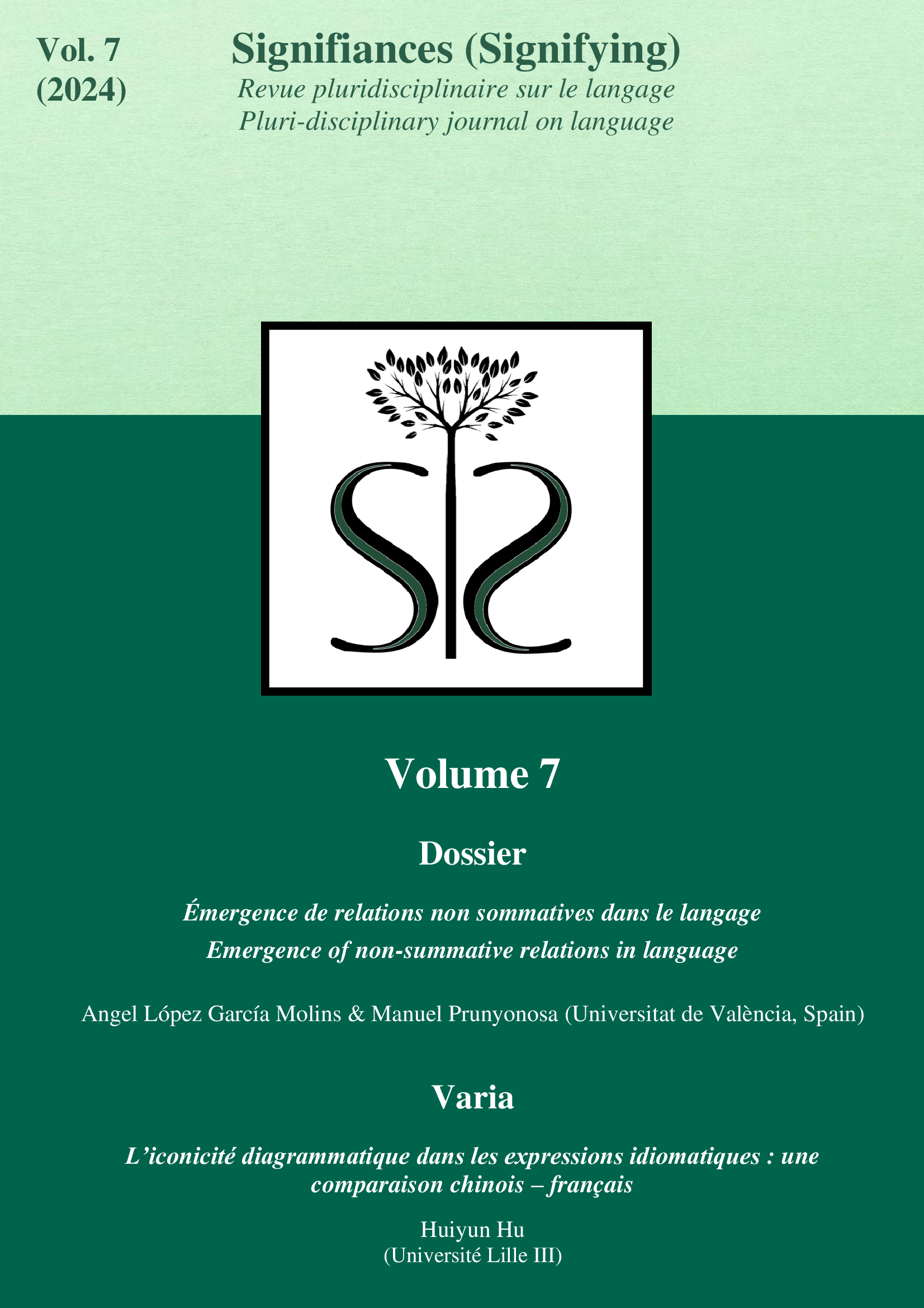A note on the suffix i in colloquial Spanish: iconic motivation, distribution and values
DOI:
https://doi.org/10.52497/signifiances.v7i1.361Abstract
The Diccionario de afijos del español contemporáneo (Fábregas 2023) reports the presence of an unstressed suffix ‑i, “of uncertain origin, possibly sound symbolic”, in Spanish. Fábregas notes that this suffix is primarily found in noun hypocoristics (e.g. Paqui, Juani, Pedri) but it also attaches to other categories, including adjectives (e.g. cuqui ‘cute’) and terms of address (e.g. mami ‘mummy’, cari ‘dear’). This article has three main goals. Firstly, building on previous studies as well as an examination of additional colloquial Spanish data, I aim to describe the specific distribution of the suffix, exploring whether there are other bases to which it may attach. Secondly, I examine the main semantic and pragmatic values of the affix, noting its productivity in colloquial Spanish, particularly among certain groups of speakers. Finally, building upon traditional and more recent works on sound symbolism, and drawing from the enactive theory of language, I discuss why the suffix ‑i may be said to have acquired iconic meanings among Spanish-speakers.


